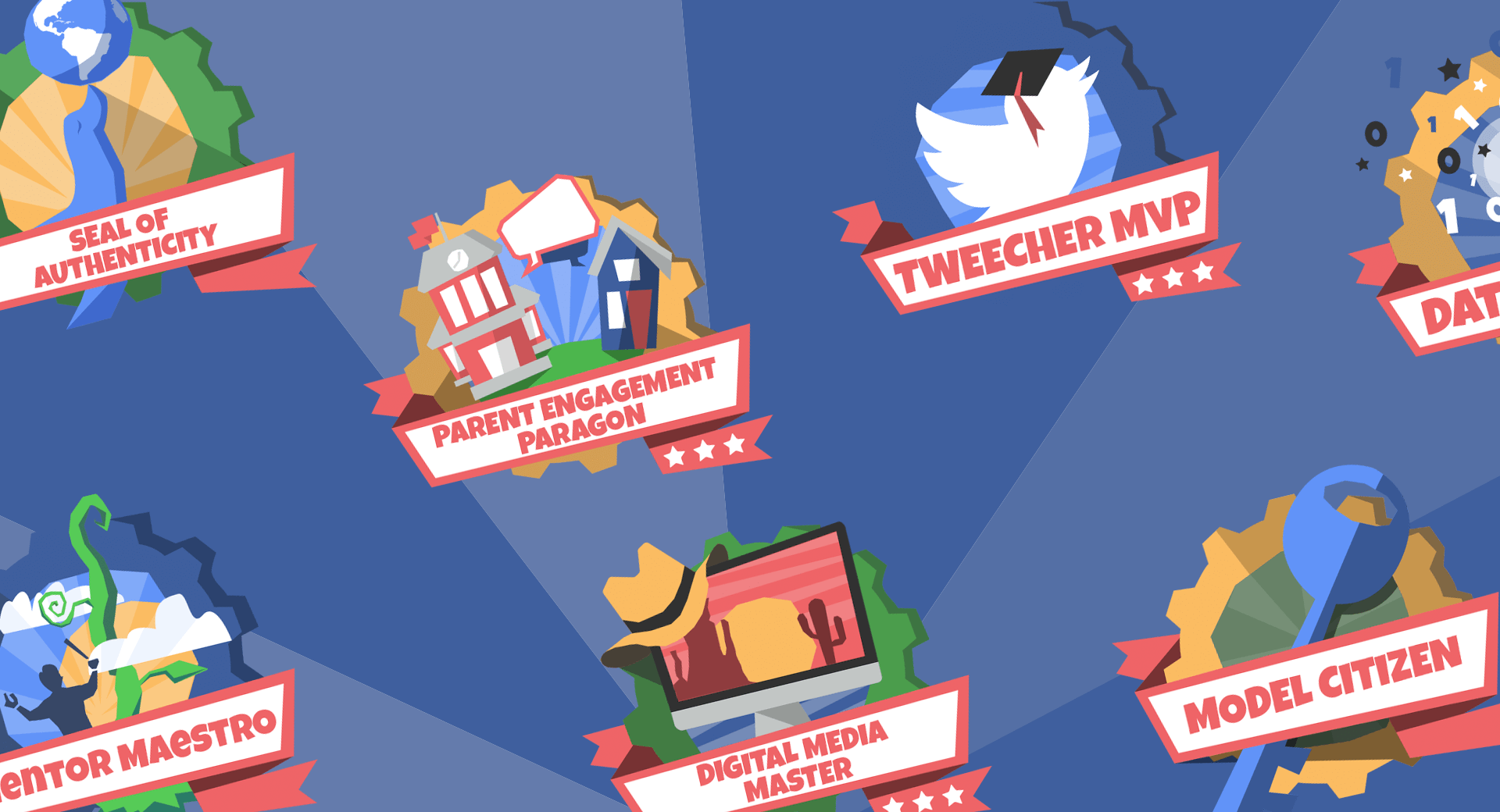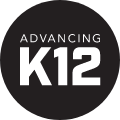
In the summer of 2017, Advancing K12 unveiled the Future-Ready Teachers badge group, an opportunity for educators to add free credentials to their digital portfolios based on increasingly common classroom practices.
When we first launched this program, we invited instructional coaches, tech coaches, and administrators to use the group as a pre-built resource for their own internal initiatives. We also welcomed any self-motivated teachers who wanted to pursue these future-ready badges on their own. We collaborated with Badge List to raise awareness and make the experience as easy as possible for newcomers to the world of badging.
It seemed like a fun idea on the surface, closely aligned with the buzz we kept hearing about digital badging, both in the classroom and for professional development. The results, however, have been mixed. As of this article's publish date, our little group has 69 members, but we have awarded only 26 badges (including 11 to one exceptionally awesome group member). Promotional efforts are consistently met with cheers, but the follow-through just hasn’t been there.
Rather than chalking up the whole endeavor as a failure and moving on, let’s reflect on the experience, chronicle the journey, and take a look at how the successes and challenges of this group mirror what’s happening in the larger digital badging landscape.
The incentive problem
In an ideal world, every professional would be self-motivated: driven by a desire to pursue new skills, master new ideas, and build a strong portfolio of credentials. In practice, that’s not how it works. In a 2016 study of social studies teachers from 13 states, all participants found value in the competency-based approach, but the consensus was that most teachers would be disinclined to pursue badges without external validation.These results align with much of the anecdotal data floating around (and with what we’ve seen in the Future-Ready Teachers group). When badging programs are not tied to pay or performance evaluation, they can struggle to gain traction.
Wisconsin’s Kettle Moraine school district has become a national model for badging-based compensation, offering $200-$600 boosts to base pay depending on the type of micro-credential earned. Not only has this resulted in unprecedented engagement from the district’s teachers, it has also opened many eyes to the wonders of personalized professional growth and measurable instructional improvements. For any administrator looking to change PD culture, Kettle Moraine is a must-see case study in excellence.
The decentralization problem
Open markets are a wonderful thing, but they can also be overwhelming for consumers. Given the hoopla around micro-credentials, the vast number of players in the market should come as no surprise. How can teachers tell badge issuers apart, and how do they know which credentials are most likely to be deemed credible by current or future employers?Micro-credentials are still a relatively young concept, and school systems are relying on a few visionary leaders to overcome decades of tradition. Of all badge issuers in the space, Digital Promise seems to have the strongest backing and buy-in, including use of its issuing platform by many popular K–12 organizations. Digital Promise’s high bar for strong supporting research and evidence requirements is crucial—digital badging will only work in the long term if micro-credentials prove to accurately represent the skills and expertise of the badge holder.
Smaller, more casual badge programs can still offer value. One of our goals with the Future-Ready Teachers group was to eliminate common barriers to entry for those who have never experienced a micro-credentialing program. We believe in the value of this program as a gateway to more widely recognized credentials like those offered by Digital Promise. We still require sufficient evidence of instructional application for our badges, but our use of a tiered mastery system renders most of the lower-level badges attainable in a matter of hours. Plus, it’s a ton of fun.
The ownership problem
Who’s driving the badging program, anyway? The lack of a consistent answer to that particular question has led to a few speedbumps on the road to adoption. Is it a district decision or a school decision? Is it managed by the small-district superintendent, the large-district professional development coordinator, or the school librarian? Is it tied to the formal performance review process, or is it just another thing happening on the side?Working in edtech, I’ve seen firsthand how much leadership matters to any training or PD venture. For digital badging to reach its potential, the right people have to not only know about it, but also possess the skillset to build, manage, and promote the program.
Going rogue
If you’re not having any luck in your efforts to champion the value of digital badging internally, DIY may be your only remaining option. That’s where platforms like Badge List and groups like Advancing K12’s Future-Ready Teachers come in handy. Look for micro-credentials meeting Open Badges standards—this widely accepted format will make your badges more likely to retain their relevance no matter what happens to the industry in the future.
When administrators try to figure out who’s going to implement the district’s new micro-credentialing program.
What’s next?
As micro-credentials continue to work their way into mainstream consciousness, now is the ideal time to get familiar with how they work, what they mean, and why they have so much potential for K–12 professional development. Whether you’re a teacher looking to convince your administrators badges are valuable or an administrator on the quest for buy-in from your teachers, the case studies are out there, and the platforms are in place for you to launch a pilot program at little-to-no cost.And if you’re looking for a free starting point, one for which all the work has already been done, you know where to find us.
Follow-up resource: Badging Playbook
Whether you're a badging novice yourself or just looking to educate others, it's best to start with the basics. Watch the Digital Badging Playbook, a four-part video series featuring everything you need to know to get your micro-credentials off the ground.WHAT'S NEXT FOR YOUR EDTECH? The right combo of tools & support retains staff and serves students better. We'd love to help. Visit skyward.com/get-started to learn more.

|
Advancing K12 Staff Edtech Thought Leaders |




